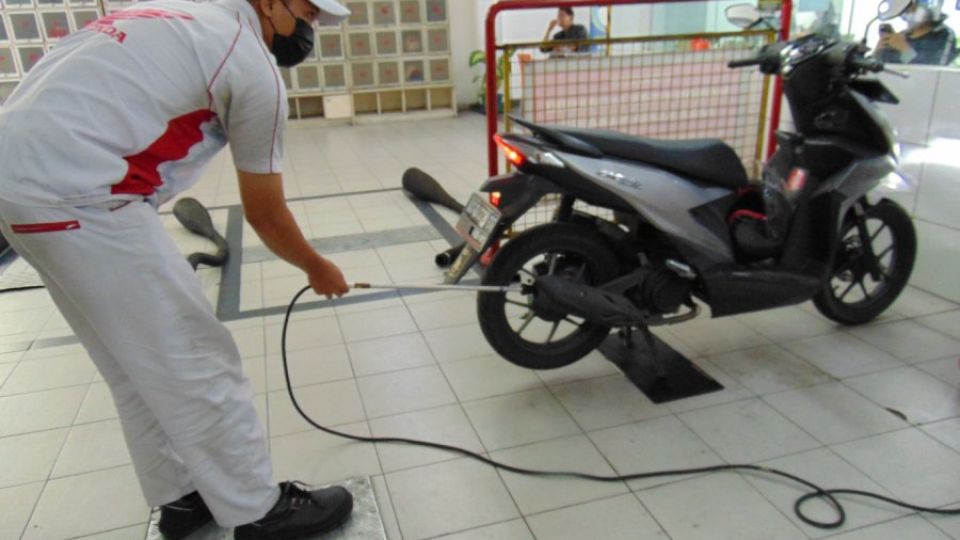January 10, 2023
JAKARTA – The new minimum wage regulation draws ire from both workers and employers, who say that it has created legal uncertainty.
Labor Party chairperson Said Iqbal explained that Perppu No. 2/2022 on Job Creation did not end the controversy surrounding minimum wage that has warmed industries in the last few months.
Before the introduction of the Perppu in December 2022, workers protested the minimum wage set by the local administrations for this year, as the average rise was below the unions’ proposal at 13 percent. In November, the government issued the Manpower Minister Regulation (Permenaker) No.18/2022 that set the minimum wage at 10 percent, factoring inflation in the calculation.
The government’s decision later met resistance from employers and they have formally filed lawsuits against the regulation.
“The Labor Party denounces Perppu’s regulation on minimum wage,” Said told reporters on Wednesday.
He said a governor could still opt not to raise the minimum wage in cities and regencies if the lower-level administrations set low wages since the Perppu only used the word “able.”
Said calls for the government to remove the word “able” in the Perppu so governors are forced to determine the rate hikes, lessening the uncertainty.
Read also: Jobs Perppu: Employers deem outsourcing restrictions ‘counterproductive’
In the Perppu, he said the formula for minimum wage was not following international standards, as the government included “certain indexes” variables that were not stated in the International Labour Organization (ILO).
There were only two formulas for minimum wage recognized by the ILO, Said said. The first is the sum of gross domestic production (GDP) growth rate and inflation, while the second is the survey of living cost standards.
As there is no certainty over the “certain indexes” variable, he calls for the government to return the formula to the one before the job creation law, namely the sum of GDP growth rate and inflation.
If the government insists on using certain indexes that mirror Permenaker’s “alpha” constants of 0.1 to 0.3, then Said recommends raising the range to within 0.75 to 1.00.
The party also stated the flexibility to change minimum wage formula “in certain economic situations” were not appropriate as not all economic sectors had the same conditions in times of crisis, noting the huge boom for crude palm oil and coal industries during the COVID-19 pandemic.
Under the basis of fairness, Said recommends the government revise the clause to provide deferment of minimum wage to companies that can prove their two-year consecutive losses in a written report.
Last but not least, he rejects the removal of sectoral minimum wage, which was made based on different values of workers across industries, noting that the minimum wage in the automotive, mining and banking sectors should be higher than footwears, textiles and other labor-intensive industries.
“Isn’t it weird that the mining company Freeport has the same minimum wage as a flip-flops factory?” Said told reporters.
Read also: New minimum wages upset labor, yet employers pursue lawsuit
Businesses, on the other hand, view the new minimum wage policy also lacks legal certainty and lowering Indonesian workers’ competitiveness.
Indonesia Textile Association (API) deputy chairperson Nurdin Setiawan said the rules for minimum wage formula flexibility had eradicated any legal certainty for manpower issues.
As wage is the second largest expense after material purchases, Nurdin said the government made it hard to maintain good industrial relations, particularly after 60,000 workers had been homed.
Since the start of 2022, the textile industry’s decreasing order is already in the range of 30 to 50 percent down, whereas estimates for order in the first quarter of 2023 are only 65 percent production capacity.
“We ask for protection from the government […] because we absorb a lot of workers and reduce unemployment rate,” Nurdin told reporters on Tuesday.
In a press conference on Tuesday, Indonesia Employers Association (Apindo) chairperson Hariyadi Sukamdani said the new minimum wage formulas were “worrying” due to the uncertainties it creates, which would put pressure on businesses.
Hariyadi said ideally one job was available for one worker, but currently the formal sector only absorbed 35 million people from the existing 144 million workforce; that worker absorption from investment ratio had dropped 70 percent compared to 2013.
“We, as employers and as investors, view that it is not good for us. Because if that happens, the demographic bonus will not occur. Instead, [demographic] disaster will come into fruition and it has happened now,” Hariyadi said, citing the increasing number of subsidized people.
Apindo regulation expert Susanto Haryono explained that an increase in minimum wage would not translate into a higher GDP or worker’s productivity.
Apindo, hence, urges the government to make sure that the minimum wage formula in the government regulation (PP) derivatives from this Perppu are not similar with the version in Permenaker.


